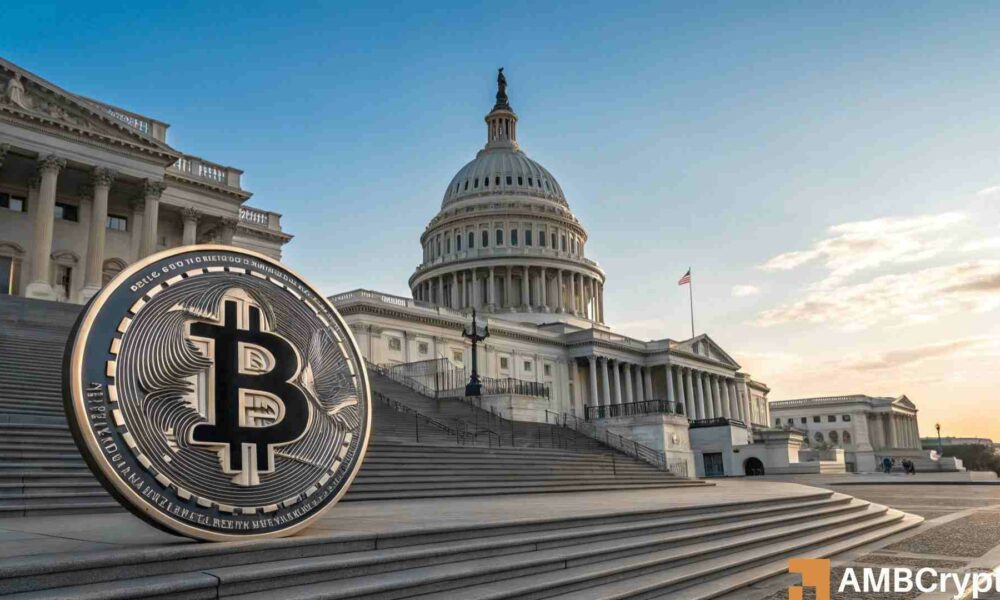- Pro-crypto lawmaker Gill violated the disclosure deadline for his BTC purchase.
- Overall, only a handful of policymakers own BTC, led by Senator McCormick.
Republican Texas lawmaker, Representative Brandon Gill, disclosed his Bitcoin [BTC] trades past the deadline. Per a recent disclosure, the pro-crypto congressman purchased up to $500K worth of BTC in January and February.
According to a report by Open Secrets, the late submission meant that the policymaker was out of the 45-day window mandated for reporting such trades under the Stop Trading on Congressional Knowledge Act (STOP Act).
However, Gill made two more BTC purchases in May, one worth $100K-$250K and the other about $50K-$100K. The last month’s disclosure was within the 45 days.
But his Q1 purchases have raised scrutiny amongst lawmakers, especially pro-crypto policymakers.
Surprisingly, Gill isn’t the only one who has failed to abide by the STOCK Act. The report added that in 2024, over 62 representatives violated the disclosure law across stocks and digital assets.
However, they are only liable for a $200 fine.
U.S. lawmakers have little crypto exposure
That said, about 19 politicians, mostly Republicans, own Bitcoin and crypto-related stocks, according to data aggregated by Bitcoin Politicians. This data covered disclosures for the past two years.
According to a separate Reuters report in January 2025, Vice President J.D. Vance was among the 13 members who disclosed crypto holdings.
Vance reportedly owned about $250K-$500K BTC, but Senator Dave McCormick topped the list. The Senator, a former hedge fund manager, had $5 million worth of BTC, reportedly in Bitwise ETF.
Excluding McCormick, Reuters reported that American political leaders owned less than $3 million of BTC as of January 2025.
This ‘light’ exposure in the sector was contrary to the pro-crypto stance, especially amongst Republicans.
Even so, Vance recently backed BTC and the sector as a hedge against bad policy, governance, and inflation. In a separate interview, the Vice President added,
“Bitcoin is a digital store of value, consistent with the modern digital age we live in.”
However, he acknowledged that, like any other new technology, BTC and blockchain have their risks but should be allowed to build and flourish for the market to decide their fate.











